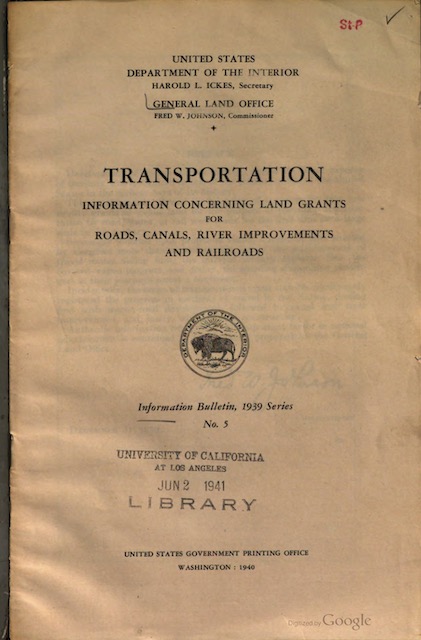I wrote several posts for my other blog, Streamliner Memories, that are relevant here as well. Recent news stories have asked why projects like the California high-speed rail and Honolulu rail line are so expensive. The answer is that the politicians who support these projects don’t care about the cost because someone else will have to pay it. Or rather they do care but for them the cost is the benefit — the more they spend, the more might be turned into contributions to their future political campaigns from grateful contractors.
 This 1939 report from the Department of the Interior lists 105 railroad, wagon road, canal, and river improvement land grants made by Congress in the 19th century and how many acres various transportation companies ended up receiving for those grants. A few of the grants, including the massive Northern Pacific grant, were still open with the grantees hoping to get several million more acres. Click image to download a 4.7-MB PDF of the report.
This 1939 report from the Department of the Interior lists 105 railroad, wagon road, canal, and river improvement land grants made by Congress in the 19th century and how many acres various transportation companies ended up receiving for those grants. A few of the grants, including the massive Northern Pacific grant, were still open with the grantees hoping to get several million more acres. Click image to download a 4.7-MB PDF of the report.
We saw an early example of this in the First Transcontinental Railroad and later railroads supported by large federal land grants. Railroads weren’t the only transportation projects supported by federal land grants: there were also canals, wagon roads, and river improvements. As it happens, I live near one of the wagon road projects that turned out to be a giant scam in which a few people got more than 860,000 acres of federal land for doing little more than driving a wagon across the state of Oregon. Continue reading







